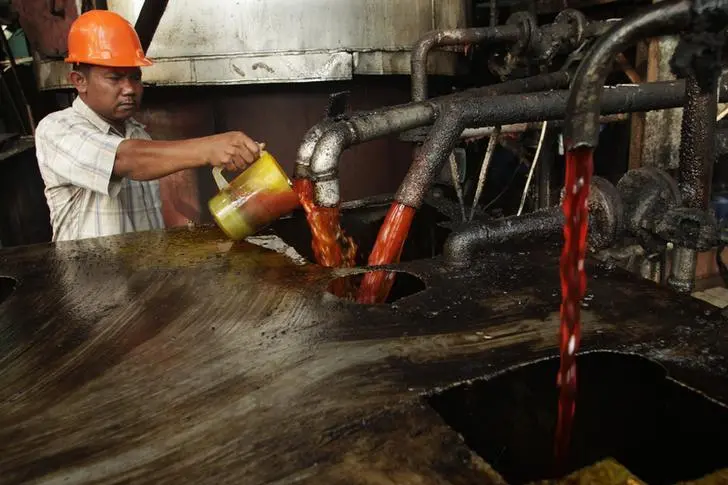PHOTO
Indonesia will remove retail price caps for packaged cooking oil and will subsidise bulk sales to try to ensure supply at retail markets after previous price controls resulted in a scarcity, senior officials said on Tuesday.
Global prices of crude palm oil, which Indonesia uses for cooking oil, have surged to historic highs this year amid rising demand and weak output from top producers Indonesia and Malaysia.
The war in Ukraine has squeezed supply of other vegetable oils, pushing prices of palm oil higher.
Indonesia has also restricted palm oil exports to try to ensure domestic supply, which further fed the price upswing.
Under the latest measure, Indonesia will allow cooking oil to be priced according to its market price for packaged oils, chief economic minister Airlangga Hartarto said in a virtual briefing.
The government will raise the price cap for bulk cooking oil to 14,000 rupiah per litre, from 11,500 per litre previously, and provide subsidies, he added.
"We hope that with this economic value, palm oil will be available in both modern and traditional markets," Airlangga said.
The new measure will effectively remove a 14,000 rupiah price cap for premium packaged cooking oil and 13,500 rupiah ceiling for second tier quality oil.
Those were introduced in January as authorities scrambled to control cooking oil prices that had risen about 40%.
However, Indonesia's Ombudsman reported those price caps did not calm buyers and instead led to scarcity at modern retailers, even with shops limiting buyers to two litres each. At traditional markets, cooking oils were sold above the regulated price.
The government had earlier this year said it would set aside 3.6 trillion rupiah ($251.31 million) to subsidise cooking oil, but the plan was scrapped when it introduced export restrictions.
Airlangga said authorities were bringing back subsidies amid rising commodity prices but did not elaborate further.
A state agency in charge of collecting palm oil export levy, the BPDPKS, will be tasked to fund this, he said.
BPDPKS is still awaiting the government's calculation for the amount of subsidy, director Kabul Wijayanto said. ($1 = 14,325.0000 rupiah)
(Reporting by Bernadette Christina Munthe Additional reporting Stanley Widianto Writing by Fransiska Nangoy Editing by Gayatri Suroyo, Martin Petty)
Reuters





















